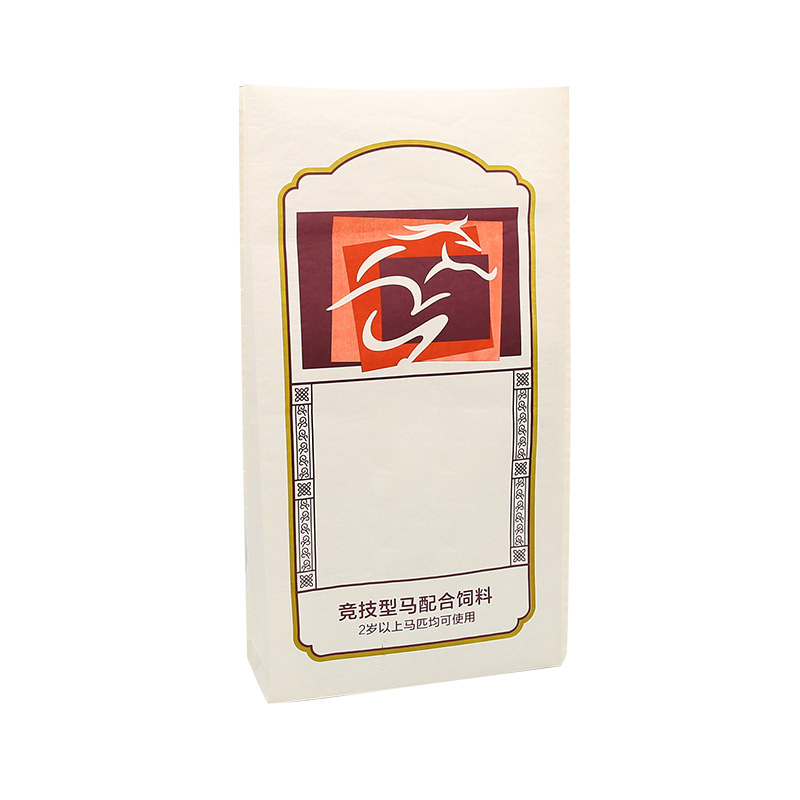PP woven bags have become a reliable choice for modern industrial and agricultural use. These sacks offer practical advantages that support logistics, reduce operational costs, and maintain product quality during handling and storage.

One of the key applications of PP woven sacks is in the cement industry. PP woven cement bags provide a durable and strong option for transporting bulk cement from manufacturing facilities to construction sites. The woven structure allows the bags to withstand heavy weight and rough handling without tearing. Additionally, these bags can be designed with multiple layers or laminated surfaces to offer moisture resistance, which is critical for maintaining cement quality during transit and storage. By using laminated woven bags, manufacturers and distributors can protect cement from environmental factors such as humidity, reducing the risk of product damage and associated financial losses.
In agricultural sectors, PP woven bags serve as an essential solution for storing and transporting grains and other food products. PP bags for rice, for instance, are widely used for both domestic and international trade. These bags provide a stable, breathable, and hygienic packaging option that helps prevent spoilage and contamination. The lightweight yet strong nature of PP woven materials allows for easy handling and stacking in warehouses and during shipping. Moreover, rice packed in PP woven sacks can maintain its quality over longer storage periods, supporting efficient supply chain operations and reducing food waste.
Beyond cement and rice, PP woven sacks find applications in a variety of industrial sectors, including chemicals, fertilizers, and construction materials. The adaptability of these bags allows manufacturers to tailor specifications such as thickness, weaving pattern, and lamination type to meet the specific requirements of their products. For example, laminated woven bags are often used for chemicals and fertilizers where moisture protection and durability are crucial. These design considerations help companies streamline their supply chains by reducing product loss and handling issues.
The benefits of PP woven sacks extend to cost efficiency and logistics management. Compared to alternative packaging solutions, these sacks are lightweight, which reduces shipping costs while still providing sufficient strength to hold heavy materials. Their stackable design improves warehouse organization and optimizes storage space. In addition, the reusable nature of some PP woven sacks allows businesses to implement multiple usage cycles, contributing to sustainability initiatives and reducing packaging waste. This is particularly relevant as industries seek to meet environmental regulations and adopt eco-conscious practices.
From a manufacturing standpoint, PP woven sacks are versatile and can be customized for branding and labeling purposes. Companies can print product information, handling instructions, and safety guidelines directly on the sack surface, reducing the need for additional labeling and improving overall supply chain efficiency. The combination of durability, protective qualities, and customizability makes these sacks a practical choice for industries that require consistent performance across diverse transportation and storage conditions.
In recent years, advancements in PP woven bag technology have introduced innovations such as enhanced lamination techniques and multi-layer construction. These improvements further increase the strength, moisture resistance, and longevity of the bags, supporting complex supply chain operations. For instance, laminated woven bags used in cement and fertilizer packaging can withstand stacking pressures and environmental challenges during international shipping, ensuring that products arrive at their destinations in good condition.
PP woven sacks provide numerous benefits across industrial supply chains, from construction materials like cement to agricultural products such as rice. Their durability, protective features, cost efficiency, and adaptability contribute to smoother logistics, reduced product loss, and enhanced operational performance. By incorporating PP woven cement bags, laminated woven bags, and PP bags for rice into packaging strategies, businesses can achieve practical advantages that support both commercial and environmental objectives. As industries continue to evolve, PP woven sacks remain a reliable and versatile packaging solution that addresses the diverse demands of modern supply chains.


 English
English Español
Español عربى
عربى
